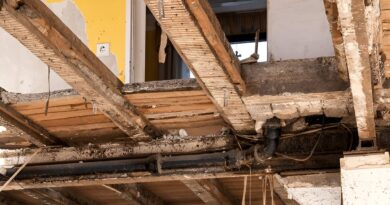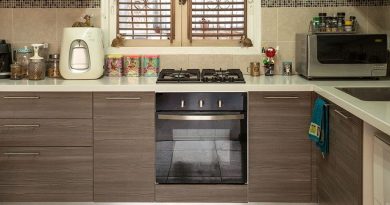Water Damage Restoration in Union: What Every Homeowner Should Know
Water damage in Union NJ can be a homeowner’s worst nightmare. It can occur suddenly and without warning, leading to significant financial burdens and emotional stress. Understanding the causes, effects, and restoration processes associated with water damage is crucial for homeowners in Union, NJ. This article will provide a comprehensive overview of water damage restoration, including prevention strategies, what to do in case of an incident, and how to choose the right professionals for the job.
Understanding Water Damage
Water damage refers to the destruction caused by water infiltrating areas where it can cause harm. This can happen due to various reasons, including natural disasters, plumbing failures, or appliance malfunctions. The impact of water damage can be extensive, affecting not only the structure of the home but also the health of its occupants.
Types of Water Damage
Water damage can be categorized into three main types:
- Clean Water Damage: This type originates from a clean source, such as a broken pipe or a malfunctioning appliance. While it is less harmful, it can still lead to significant issues if not addressed promptly.
- Gray Water Damage: This involves water that may contain contaminants, such as from washing machines or dishwashers. Although it is not immediately dangerous, it can pose health risks if left untreated.
- Black Water Damage: This is the most severe type, often resulting from sewage backups or flooding from rivers. Black water contains harmful bacteria and pathogens, making it essential to seek professional help immediately.
Common Causes of Water Damage
Understanding the common causes of water damage can help homeowners take preventive measures. Some of the most frequent culprits include:
- Burst Pipes: Aging or frozen pipes can burst, leading to significant water loss and damage.
- Appliance Failures: Dishwashers, washing machines, and water heaters can malfunction, causing leaks.
- Roof Leaks: Damaged roofs can allow rainwater to seep into the home.
- Flooding: Heavy rains or storms can lead to flooding, especially in low-lying areas.
The Effects of Water Damage
The consequences of water damage can be severe and long-lasting. It can lead to structural issues, mold growth, and damage to personal belongings.
Structural Damage
Water can weaken the structural integrity of a home. Walls, ceilings, and floors can warp or buckle, leading to costly repairs. In severe cases, the foundation may be compromised, requiring extensive remediation.
Mold Growth
Mold thrives in damp environments, and water damage creates the perfect conditions for its growth. Mold can pose serious health risks, including respiratory issues and allergic reactions. It can also lead to further damage to the home if not addressed quickly.
Damage to Personal Belongings
Water can ruin furniture, electronics, and personal items. The cost of replacing these items can add up quickly, making it essential to act fast to minimize losses.
Prevention Strategies
Preventing water damage is always more cost-effective than dealing with the aftermath. Here are some strategies homeowners can implement:
Regular Maintenance
Conduct regular inspections of plumbing systems, appliances, and roofs. Look for signs of wear and tear, such as leaks or rust, and address them promptly.
Install Water Alarms
Water alarms can alert homeowners to leaks before they become significant problems. These devices can be placed near appliances or in basements to detect moisture.
Proper Drainage
Ensure that gutters and downspouts are clear and directing water away from the foundation. Landscaping should also slope away from the home to prevent water accumulation.
What to Do If You Experience Water Damage
If you find yourself facing water damage, it’s crucial to act quickly to minimize the impact.
Step 1: Shut Off the Water Source
If the damage is due to a burst pipe or appliance failure, turn off the water supply immediately. This will help prevent further damage.
Step 2: Document the Damage
Take photos and videos of the affected areas. This documentation will be essential for insurance claims and restoration efforts.
Step 3: Contact Professionals
Reach out to a water damage restoration service. These experts have the tools and knowledge to assess the damage and begin the restoration process.
Choosing the Right Water Damage Restoration Service
Selecting a reputable restoration service is vital for effective recovery. Here are some tips to help you choose the right professionals:
Look for Certifications
Ensure that the restoration company is certified by organizations such as the Institute of Inspection, Cleaning and Restoration Certification (IICRC). This indicates that they adhere to industry standards.
Read Reviews
Check online reviews and testimonials from previous clients. This can provide insight into the company’s reliability and quality of service.
Get Multiple Estimates
Don’t settle for the first estimate you receive. Obtain quotes from several companies to compare services and pricing.
The Restoration Process
Understanding the restoration process can help homeowners know what to expect after water damage occurs.
Assessment
The first step in the restoration process is a thorough assessment of the damage. Professionals will evaluate the extent of the water intrusion and identify any potential hazards.
Water Removal
Using specialized equipment, restoration teams will remove standing water from the affected areas. This step is crucial to prevent further damage and mold growth.
Drying and Dehumidification
After water removal, the area must be thoroughly dried. Dehumidifiers and fans are often used to ensure that all moisture is eliminated.
Cleaning and Sanitizing
Once the area is dry, professionals will clean and sanitize surfaces to prevent mold growth and eliminate any contaminants.
Restoration
The final step involves restoring the home to its pre-damage condition. This may include repairing or replacing flooring, drywall, and other affected materials.
Insurance and Water Damage
Understanding your insurance coverage is essential for homeowners facing water damage.
Homeowners Insurance
Most standard homeowners insurance policies cover water damage caused by sudden and accidental incidents, such as burst pipes. However, it’s important to review your policy to understand the specifics of your coverage.
Flood Insurance
Homeowners in flood-prone areas should consider purchasing separate flood insurance. Standard policies typically do not cover flood damage, so additional coverage may be necessary.
Filing a Claim
If you experience water damage, contact your insurance company as soon as possible. Document the damage thoroughly and provide all necessary information to expedite the claims process.
Conclusion
Water damage restoration in Union, NJ, is a critical topic for homeowners to understand. By being aware of the causes, effects, and restoration processes, homeowners can take proactive steps to protect their properties. Regular maintenance, prompt action in the event of water damage, and choosing the right professionals are all essential components of effective water damage management. With the right knowledge and resources, homeowners can navigate the challenges of water damage and ensure their homes remain safe and secure.
For more information about Water Damage Restoration in Union New Jersey please contact:
Business Name: Green Guard Mold Remediation Of Union
Address: 1620 US-22, Union, NJ 07083, United States
Phone: +1 908-263-1697
Website: https://www.greenguardmoldremediationunion.com/
Google Map: https://maps.app.goo.gl/nTeBNYiTPWu9MotM6




